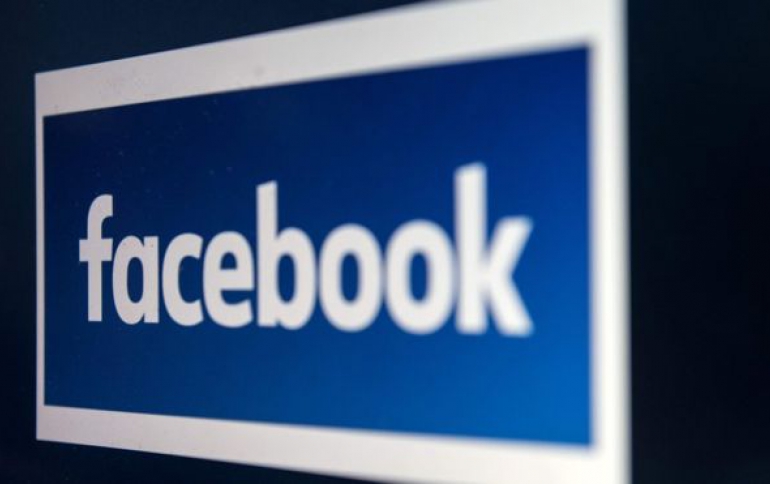
Facebook Admits Spending Time on Social Media is Bad for You
Facebook says that spending more time on social media is bad for your offline relationships, although actively interacting with online people is linked to improvements in "well-being."
In a corporate blog post signed by David Ginsberg, Director of Research, and Moira Burke, Research Scientist at Facebook, the social network is trying to address the question whether the time we spend online is good for us.
In short, Facebook struck back against scientific researchers and tech industry insiders who have criticized the world's biggest social media network and its competitors for transforming how people behave and express emotion. The company said that social media can be good for people's well-being if they use the technology in a way that is active, such as messaging with friends, rather than passive, such as scrolling through a feed of other people's posts.
The social netwok is trying to defend a business model that translates users? attention into advertising revenue.
Psychologist Sherry Turkle asserts that mobile phones redefine modern relationships, making us "alone together." In her generational analyses of teens, psychologist Jean Twenge notes an increase in teen depression corresponding with technology use.
On the other hand, Facebook quotes sociologist Claude Fischer, who argues that claims that technology drives us apart are "largely supported by anecdotes and ignore the benefits." Sociologist Keith Hampton's study of public spaces suggests that people spend more time in public now - and that cell phones in public are more often used by people passing time on their own, rather than ignoring friends in person.
In order to support its own existance, Facebook research teams work with scientists like Robert Kraut at Carnegie Mellon; Sonja Lyubomirsky at UC Riverside; Dacher Keltner, Emiliana Simon-Thomas, and Matt Killingsworth from the Greater Good Science Center at UC Berkeley, and have partnered with mental health clinicians and organizations like Save.org and the National Suicide Prevention Lifeline.
According to Facebook, on social media, you can passively scroll through posts, much like watching TV, or actively interact with friends - messaging and commenting on each other's posts. Just like in person, interacting with people you care about can be beneficial, while simply watching others from the sidelines may make you feel worse.
Facebook admits that in general, when people spend a lot of time passively consuming information - reading but not interacting with people - they report feeling worse afterward. In one experiment, University of Michigan students randomly assigned to read Facebook for 10 minutes were in a worse mood at the end of the day than students assigned to post or talk to friends on Facebook. A study from UC San Diego and Yale found that people who clicked on about four times as many links as the average person, or who liked twice as many posts, reported worse mental health than average in a survey. Though the causes aren't clear, researchers hypothesize that reading about others online might lead to negative social comparison - and perhaps even more so than offline, since people's posts are often more curated and flattering. Another theory is that the internet takes people away from social engagement in person.
On the other hand, Facebook says that actively interacting with people - especially sharing messages, posts and comments with close friends and reminiscing about past interactions - is linked to improvements in well-being. "This ability to connect with relatives, classmates, and colleagues is what drew many of us to Facebook in the first place, and it's no surprise that staying in touch with these friends and loved ones brings us joy and strengthens our sense of community," according to Facebook.
A study Faecbook conducted with Robert Kraut at Carnegie Mellon University found that people who sent or received more messages, comments and Timeline posts reported improvements in social support, depression and loneliness. The positive effects were even stronger when people talked with their close friends online.
In an experiment at Cornell, stressed college students randomly assigned to scroll through their own Facebook profiles for five minutes experienced boosts in self-affirmation compared to students who looked at a stranger's Facebook profile. The researchers believe self-affirmation comes from reminiscing on past meaningful interactions - seeing photos they had been tagged in and comments their friends had left - as well as reflecting on one's own past posts, where a person chooses how to present themselves to the world.
In a follow-up study, the Cornell researchers put other students under stress by giving them negative feedback on a test and then gave them a choice of websites to visit afterward, including Facebook, YouTube, online music and online video games. They found that stressed students were twice as likely to choose Facebook to make themselves feel better as compared with students who hadn't been put under stress.
"In sum, our research and other academic literature suggests that it's about how you use social media that matters when it comes to your well-being," Facebook says.
Facebook says it is spending $1 million on research into the relationship among technology, youth development and well-being.
Seperately, Facebok today launched Snooze, which gives people the option to hide a person, Page or group for 30 days, without having to permanently unfollow or unfriend them.





















